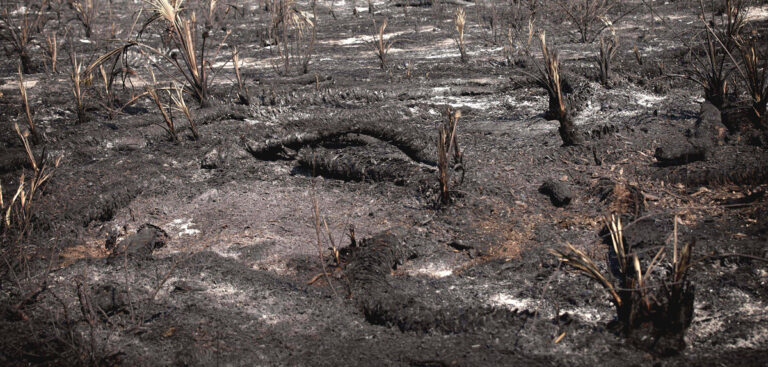Wildfires increase the amount of snowpack in the regions they affect, a new study has revealed.
The research by scientists at Brigham Young University found that the depth of snowpack – the snow that accumulates on the ground – was 85% greater in areas that had been completely burned away by forest fires. The study also found that water equivalency (the proportion of water in the snowpack) increased in proportion to an increase in tree mortality.
The team came to their findings by measuring snow depth levels and snow-water equivalency at 30 sampling spots affected by the Twitchell Canyon Fire, a 2010 wildfire that consumed 45,000 acres.
They compared this data against tree data from the same sights – whether trees were present, their height and diameter, and if the trees had been killed by the blaze.
“Fires mean more snow into the system initially because of reduced trees that usually block and hold the snow temporarily on branches,” said Sam St Clair, a professor of plant and wildlife sciences Brigham Young.
St Clair said this was a “good outcome” for north-facing slopes where “the snowpack will hold in the shade”.
But he noted that for south-facing slopes, which are more exposed to the sun, a deep snowpack coupled with a rapid spring melt could mean “a higher chance of erosion, loss of nutrients and potential of flooding for downstream communities.”
“The larger and more severe the wildfire, the increased flood potential for valleys,” he added.
The findings could have important implications for water security given that snow-water resources from mountain watersheds provide fresh water for over 20% of the global human population.
St Clair said that study published in Environmental Research Letters provided an important lesson to hydrologists of the need to take account of the increasing number and severity of wildfires in their estimations of flooding and drought risk.
“Wildfire regimes are changing forest ecosystems, and now we know they’re impacting water hydrology too,” said St Clair. “This is our future – increased fired due to climate change. As a fire ecologist, this research is now in the center of what everyone cares about.”



